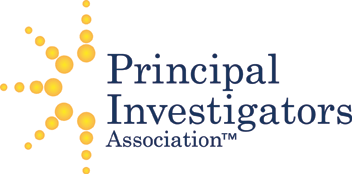|
With over 4 hours of detailed instruction, this NSF Grant Application Webinar Bundle is one of the most comprehensive grant-writing tools available today. It is filled with expert, how-to guidance for the NSF’s most competitive grants. One-of-a-kind Deal! Now, you can obtain the entire collection for an exclusive rate of $199 (a $775 value). Plus! Order today and receive a special bonus. Order online, call 800-303-0126 ext. 506 or fax/mail your order form in.
|
|
Many research groups today have adopted a start-up, entrepreneurial type of mentality where potential commercialization is a very valid outcome for innovative research. In I-Corps, instead of a conventional proposal you prepare a mini-business plan in five pages and work closely with an NSF program officer to move through the short process. It is 45 days from submission to decision! The program began in late 2011 and 250 awards are anticipated in 2013. This insightful webinar will provide an I-Corps program overview and will get right down to how to best structure your effort for a successful proposal. Once you get the green light your expert presenter will discuss how to rapidly create the five page proposal, give some key tips on building your I-Corps team and discuss how to identify the important industry mentor. You will look at several successful projects that have been funded and review advice from NSF program officers that will make sure your submission a sure-fire success. You will see how you and your research students will become part of an entrepreneurial network and really leverage your research efforts to increase the impact of what you do. 5 Key Take-Aways:
60-Minute On-Demand Webinar. Available in CD, MP4 or PDF Transcript. |
|
 How to Produce a Winning NSF SBIR Phase I and Phase II Proposal How to Produce a Winning NSF SBIR Phase I and Phase II Proposal
The primary objective of the NSF SBIR Phase I and Phase II Programs is to increase the incentive and opportunity for small firms to undertake cutting-edge, high-risk, high-quality scientific, engineering, or science research that would have a high-potential economic payoff if the research is successful. That’s pretty clear. Unfortunately, producing SBIR Phase I and Phase II proposals isn’t as straightforward as we would like, and many scientists struggle with crafting an effective proposal. Some key questions scientists are faced with include: What level of detail should be included in a SBIR Phase I and Phase II proposal? What are the key differentiators the Review Panelist and Program Directors look for? How do timing, market dynamics and strength of personnel affect proposal outcomes? And, which category should my proposal be submitted under? During this insightful Webinar, your expert presenter will reveal insider strategies you can implement to increase your chances for funding. Gain answers to the most commonly asked questions; learn what inspires Review Panelists and Program Directors the most, and much more. 5 Key Take-Aways:
60-Minute On-Demand Webinar. Available in CD, MP4 or PDF Transcript.
|
 EArly-concept Grants EArly-concept Grantsfor Exploratory Research (EAGER) at NSF The EAGER funding mechanism may be used to support exploratory work in its early stages on untested, but potentially transformative, research ideas or approaches. This work may be considered especially “high risk-high payoff” in the sense that it, for example, involves radically different approaches, applies new expertise, or engages novel disciplinary or interdisciplinary perspectives. EAGER grants can be a real stepping stone for researchers early in their careers or a good option for a project that is in the back of the mind of a mid-career investigator. These types of proposals are not reviewed externally. The program officer makes the decision based on internal review only, so connection with the program and program officer are key success factors. Your knowledge of the process and the sort of projects that get funded are crucial to developing a successful strategy. Should you take your project down the EAGER pathway? Find out during this insightful webinar. 5 Key Take-Aways:
60-Minute On-Demand Webinar. Available in CD, MP4 or PDF Transcript.
|
|
 Data Management Plans for Successful NIH and NSF Grants Data Management Plans for Successful NIH and NSF Grants
Effective data management before, during and after completing your research is essential to ensure you and others can use, preserve and access the information. Many federal funding agencies, including NIH and most recently NSF, require that grant applications contain management plans for projects involving data collection. NSF will review your Data Management Plan as part of the Intellectual Merit or Broader Impacts of the proposal, or both, as appropriate. During this how-to webinar, your expert presenter will offer data management alternatives to consider before you begin your proposed research, specify what should be included, provide strategies for overcoming data management issues, and offer step-by-step guidance so your plan meets all important NIH and NSF requirements. 5 Key Take-Aways:
60-Minute On-Demand Webinar. Available in CD, MP4 or PDF Transcript. |
|
|
PDF Transcripts will be fulfilled within 48 hrs via email. For CD purchases, please allow 7-10 days for delivery. MP4 purchases will be fulfilled within 48 hrs via email. These Webinars are brought to you as a training tool by the Principal Investigators Association, which is an independent organization. The information presented and its contents are not connected with the National Institutes of Health (NIH) or the National Science Foundation (NSF), nor are they endorsed by these agencies. All views expressed are those personally held by the author and are not official government policies or opinions. |








